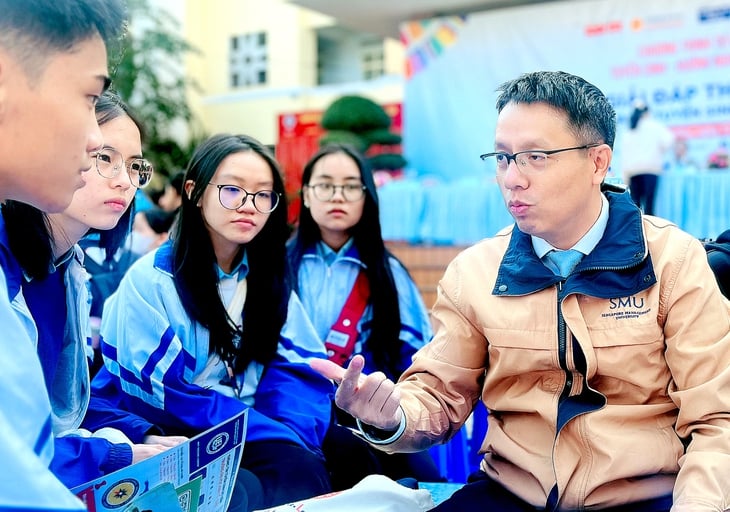
Master Cu Xuan Tien, Head of Admissions and Student Affairs Department of the University of Economics and Law (Ho Chi Minh City National University), advises students on university admissions as well as how to study at university and build lifelong learning capacity - Photo: N.HUY
In the context of the world changing every day, every hour due to the strong and rapid development of technology, knowledge and professional skills, learning has gone beyond the traditional framework, becoming an urgent requirement that lasts throughout each person's life.
"40 years of college"
General Secretary To Lam emphasized in his recent article: "A number of cadres, civil servants, public employees, and workers are satisfied with the knowledge they have learned in schools and training facilities or are chasing after learning to complete their qualifications to qualify for promotion, and are unwilling to research and study regularly to improve their professional qualifications, management capacity, knowledge, integration skills, and adaptability"...
The General Secretary also affirmed that we are in an era where knowledge, understanding and understanding will help people maximize their potential to take advantage of opportunities and effectively respond to challenges for sustainable development; it is also an era where the amount of human knowledge increases exponentially every day.
In the old economy, a four-year college degree was enough to ensure a stable career and life, but today the "40-year college degree" philosophy (Merrill Lynch) affirms that learning is a continuous, never-ending journey to adapt and survive in the modern world.
A worrying fact is that many young people still hold the old mindset, thinking that a degree is the ultimate goal of education. After graduating from university, many young people are satisfied with their existing knowledge, not making an effort to update their knowledge or develop the necessary skills for the future. This inadvertently causes them to encounter many difficulties when facing the constant changes in technology, socio-economics and labor market requirements.
Challenges and opportunities
One of the most important reasons for the need for lifelong learning is the speed at which knowledge and skills change today. According to research from the World Economic Forum, the average lifespan of a professional skill is now only about 5 years and is decreasing rapidly.
The explosive growth of automation technology, artificial intelligence (AI), digital technology and new business models such as e-commerce and digital transformation is creating enormous pressure forcing workers to continuously upgrade their skills (upskilling) to avoid being eliminated.
For example, in the manufacturing sector, today’s factory workers are facing major challenges from robots and automation systems. This places a great responsibility on businesses to build a learning culture, creating conditions for employees to regularly update and improve their skills right at the workplace.
However, we have not paid much attention to building a strategy to retrain and upgrade skills for workers like Singapore with the "Future Skills" program (SkillFutre). In the future, vocational education in our country needs to pay more attention to this issue.
Lifelong learning has always been associated with self-study and today it has become much easier and more convenient thanks to rich digital resources such as online courses, video tutorials, open documents from domestic and international universities.
To make good use of this resource, learners need to be proactive, responsible, and able to search, evaluate, and select information themselves. In particular, foreign languages and information technology skills play a very important role in accessing quality online resources and courses.
Thus, in modern society, learning is no longer a temporary task to obtain degrees or theoretical and professional certificates, but has become a lifelong journey. From young students, ordinary workers to those with the highest titles or degrees, everyone must proactively and continuously learn and adapt to rapid changes in technology, economy and society.
The philosophy of "40 years of university degree" is not only a philosophy of education but also a message about adaptability, initiative and sustainable development in each person's life and career.
Required
Not only university students, but also those who have the highest degrees such as PhDs or those with high positions or senior experts also need to maintain continuous self-study to preserve the actual value of their degrees or positions.
In the context of rapidly changing science and technology, a doctoral degree can also lose its value if the holder does not continuously research and update new advances in his or her field of expertise. Therefore, lifelong learning becomes a mandatory requirement to preserve the value of the degrees achieved.
Source: https://tuoitre.vn/co-bang-dai-hoc-khong-co-nghia-la-het-hoc-20250324062745993.htm


![[Photo] Ho Chi Minh City speeds up sidewalk repair work before April 30 holiday](https://vstatic.vietnam.vn/vietnam/resource/IMAGE/2025/4/3/17f78833a36f4ba5a9bae215703da710)




![[Photo] Capital's youth enthusiastically practice firefighting and water rescue skills](https://vstatic.vietnam.vn/vietnam/resource/IMAGE/2025/4/3/3f8481675271488abc7b9422a9357ada)

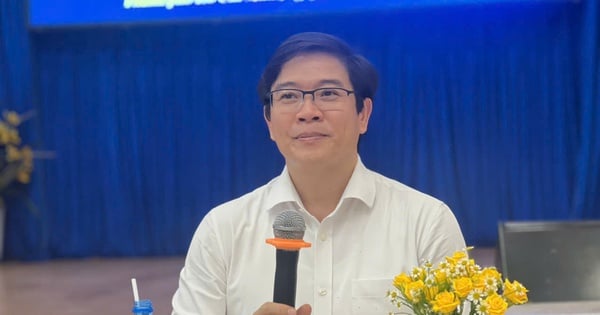













































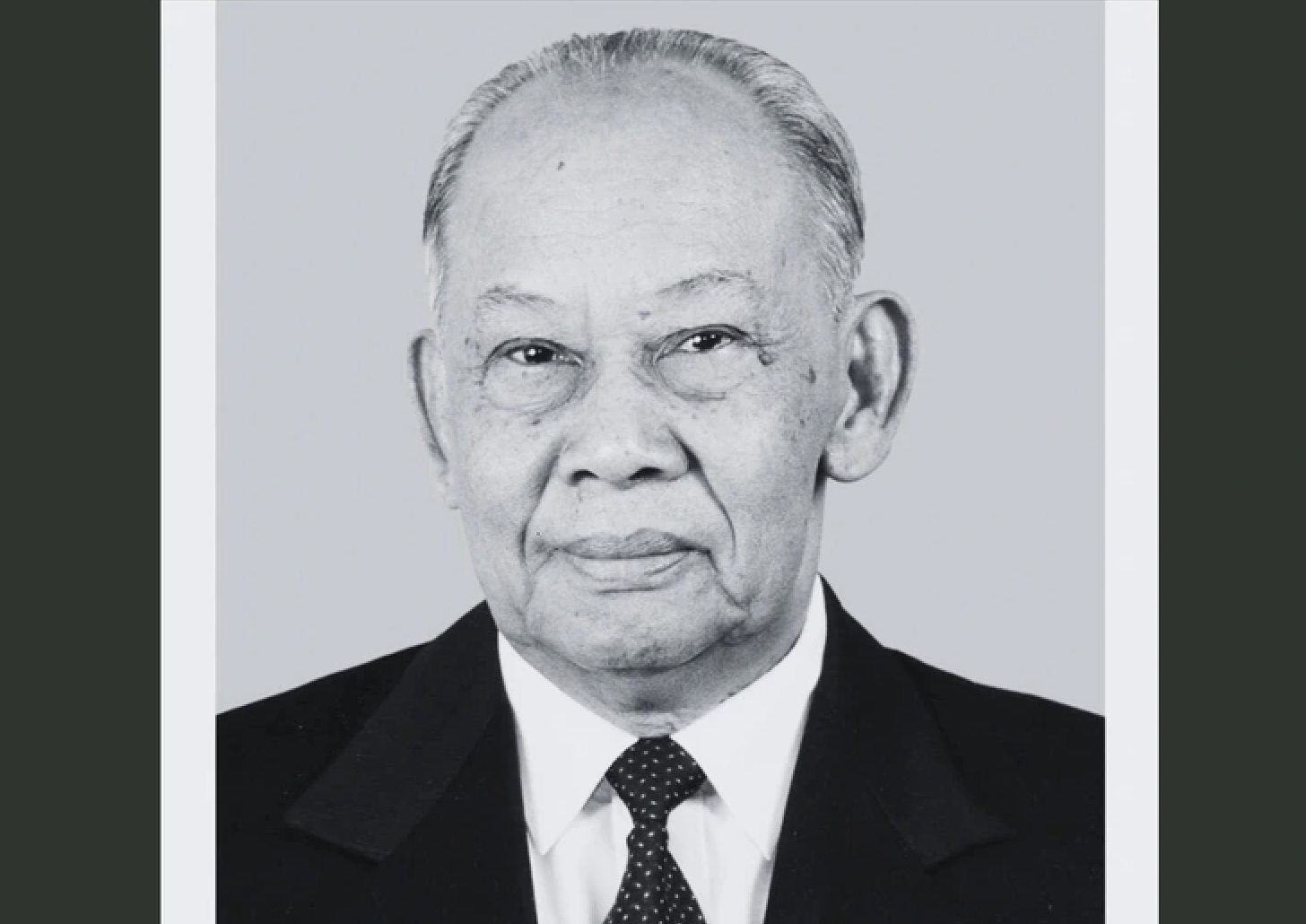


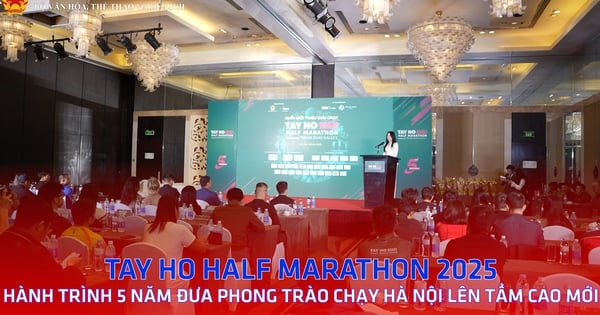







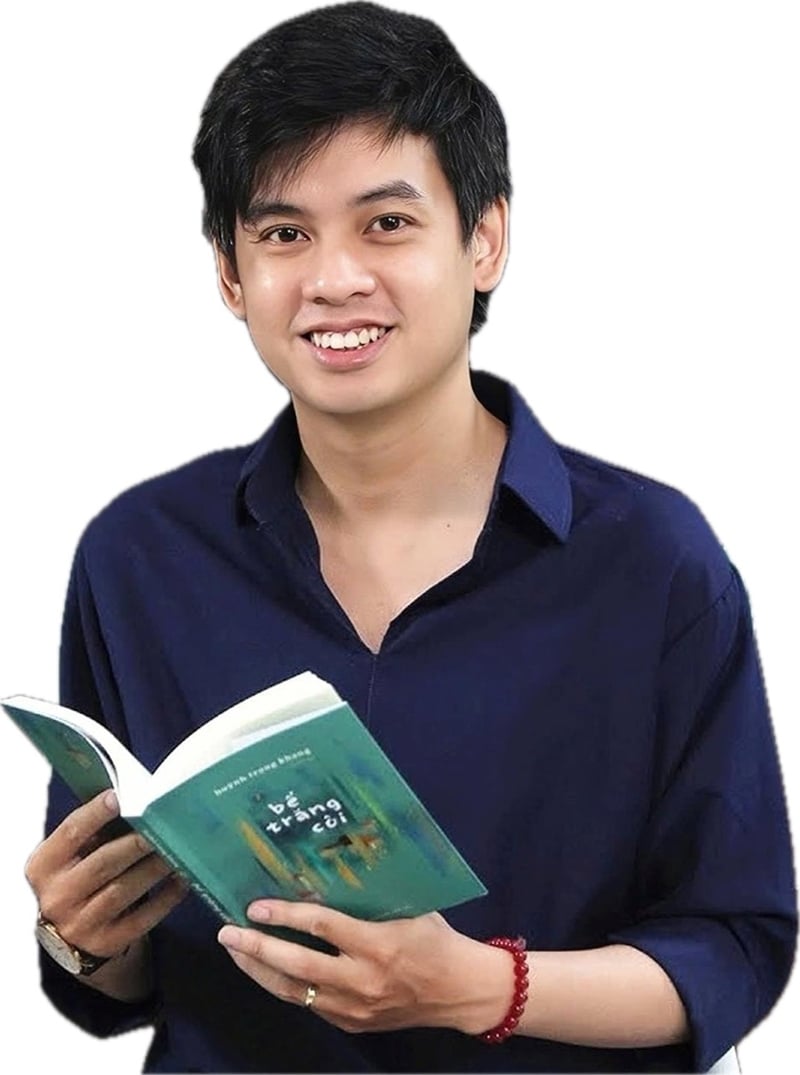





















Comment (0)